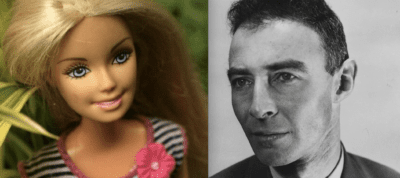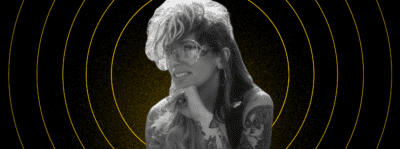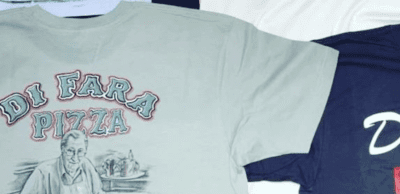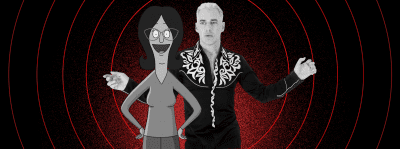Photo by Randy Fath on Unsplash
Life lessons from the first Black chess grandmaster
In two new books, Maurice Ashley reflects on Brooklyn, resilience and inspiring the next generation of players
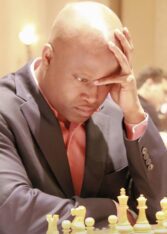
Ashley in action (Photo by Jennifer Huemmer, CC BY-SA 4.0)
Maurice Ashley became the first African American to earn an International Grandmaster chess title 25 years ago. As of today he is still only one of three Black grandmasters, of which he is the only American.
Still, despite the amount of time, energy and brainpower it takes to even contend for such a title, Ashley will tell you that he’s really only an “advanced beginner.”
“It is extremely important to understand that life is a process, and falling short at the time that you fell short is part of the growth that allows you to get better through self-reflection,” he says, sounding more Zen master than chess master. “There’s really no such thing as failure.”
Born in Jamaica, Ashley moved to the U.S. in his early teens, settling in Brownsville in the 1980s, when it was plagued by an epidemic of drugs and violence. Life in Brooklyn could be hard and even dangerous at times, but Ashley would not realize until years later the invaluable life skill he acquired: resilience.
A naturally gifted, curious and competitive person, Ashley found and started studying a chess book at Brooklyn Technical High School after a bitter loss to a childhood friend during a casual match. Since that day, Ashley has spent thousands upon thousands of hours analyzing the seemingly endless ways to move on a chessboard, mastering formations and strategies, and competing all around the world.
In his new book out April 2, “Move by Move: Life Lessons On and Off the Chessboard,” Ashley shares the wisdom he’s gained from his love of the game: “Thinking like a chess player can change your life,” he writes. “It can help you to think before you leap while also trusting your intuition, to map out the future while staying firmly rooted in the present, and to master yourself while seeing the world through the eyes of others.“
Ashley is also releasing a children’s book, “The Life-Changing Magic of Chess,” on the same day. Brooklyn Magazine sat down with Ashley to discuss both books, what he hopes readers will take away and growing up in Brooklyn where, he says, “it was real. It was street and it was take-your-head-off, kill or be killed.”
This interview has been edited for concision and clarity
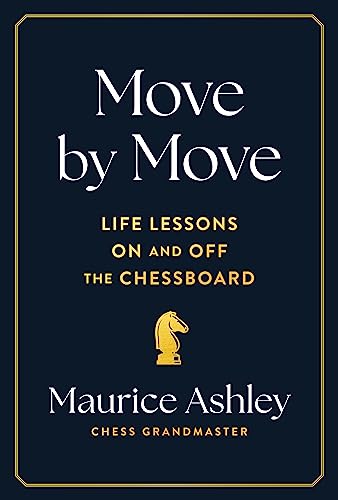

Well, the funny thing is this book was not supposed to be this book because when Princeton Architectural Press first approached me, they wanted me to write a chess book on the wild and wacky world of chess, the interesting personalities and crazy stories. And I agreed to write that book because I thought it would be an interesting book to write.
But that book refused to be written. I tried collecting stories and to get into the personal reasons and it just wouldn’t happen. Finally, a new editor came on and she said, “Listen, what book do you want to write?” I said, “You know, the book I want to write is a book about what I’ve learned from chess,” and this is what this book became, the life lessons of the game.
This book includes personal anecdotes about your childhood, your development as a player and some of the critical matches you both won and lost. You also talk about the anger and hurt you had once felt toward your parents, stemming from a fractured childhood.
Well, when I talk about chess transforming me and teaching me so many things about life, it’s because of its applicability in so many ways. And a huge part of that is how it impacts you personally. Some people just see it as a board game that you move some pieces around and have fun, checkmate your friends. And that’s all good. But I’ve always been able to integrate all my learnings in life with the lessons that would help to change who I am as a person. And so I felt like in the most vulnerable spaces is really where all the best lessons are learned.
You talk about your early years in Brooklyn, how you learned how to follow an entire game without actually looking at the chessboard, but only by reading moves from a page. And you and a friend used that skill to hustle players in Prospect Park. I’m not sure how many other chess grandmasters can share stories like that.
Brooklyn was everything for me. Growing up in New York City especially, which has such a robust park scene where a lot of people go and play chess was invaluable because I didn’t have access to all these other players, grandmasters, or international masters. My mother certainly couldn’t afford for me to take lessons from these players. And so my teachers were the hustlers in the park and members of the Black Bear School who were serious brothers, who studied the game and were street fighters in chess.
And yes, Brooklyn Technical High School was where I got my ass kicked by my friend. And then I saw the chess book in the library, checked the book out and found out that there were such things as grandmasters in international matches, and I wanted to play as well as them. They were my superheroes: famous legends like José Raúl Capablanca and Alexander Alekhine. Garry Kasparov was a big name at the time when I was growing up. And of course, the American Bobby Fischer.
But I had to go through the rough and tumble world of puzzlers in Brooklyn and guys who really didn’t care about how you felt. They didn’t care about being quiet while you were playing games and focusing. It was trash-talking going on all the time. Music was blasting. We were hearing sirens blowing by. It wasn’t an ivory tower game that some educated college professors played. It was real. It was street and it was take your head off, kill or be killed. And it was 1980s Brooklyn too.
Oh wow, that is real.
I mean yeah, come on! I know you know real well. And I didn’t realize the impact it was having on me. I could only reflect back in time to see just why I became who I became as a chess player and as a chess professional. You don’t know those things when you’re in the middle of it, but later you realize the strengths and weaknesses as well of that upbringing. But I wouldn’t trade it for the world.
I was surprised at how there were so many references to different philosophies and other famous figures who are grandmasters of their craft, like Steph Curry or Carl Sagan. How has mastering chess helped you in understanding other complicated topics and sports?
I’ve always been a curious person. I’ve always believed books can change your life. But I also think chess helped to cement that because those books that I was reading were actually making me a better player.
I remember one thing that happened to me while I was attending City College of New York. I was a creative writing major and I was in a philosophy class and the professor was talking about some analytical thing in philosophy. And the more he spoke, the more I was thinking, “Wait a minute: that’s chess.” And then I go to the next class and I go, “That’s chess.” And it amazed me how intertwined concepts from different disciplines were. So I’m thinking about that perception and then a chessboard and how I’m an observer impacting what I’m observing. And so I took that and everything else I did and then finally, I took up the martial art, Aikido. That took me to the Grandmaster title.
Wait you were learning Akido while competing in chess too?
Yeah, I was practicing it as I became a grandmaster and learning about the art of allowing your opponent to attack so that you can redirect their energies.
That’s incredible.
I was ultra-focused when I was finally on the rise, getting the final pass to the title, but I was also practicing Aikido as part of my training. I started reading about these principles and, hearing from my sensei, I said to him, “That’s chess, that’s what’s missing.” And I was able to then incorporate it into my game as I was physically doing it to my body.
So what are some of the key lessons you hope people take from “Move by Move?”
One that definitely jumps out to me is that there’s really no such thing as failure. It is extremely important to understand that life is a process and falling short at the time that you fell short is part of the growth that allows you to get better through self-reflection.
I see it in chess all the time with players who are extraordinarily talented. They get to the next level and they meet everybody else who’s extremely talented and, suddenly, they were once a big fish in a small pond, and now there are tiny fish in this large pond. They start losing games and they start thinking, “No, I don’t like the way this feels,” because they’re not used to losing games and they’ve never been trained to fail and bounce back.
Growing up the way I did in an environment that was frankly unhealthy. A lot of really — pardon my language — fucked up shit happened and it’s just the way life is. And it’s easy to feel self-pity, but jump 10 years from now when you have learned from it, you’ve become toughened by it, and now you can even turn around and give advice to others, right? And be a mentor to others because you have an authentic journey to share.
How does it feel seeing more diversity in the sport and knowing you played a major role in that momentum as a barrier breaker yourself?
You know, I became a grandmaster in 1999, March 14th. So my 25th anniversary just passed.
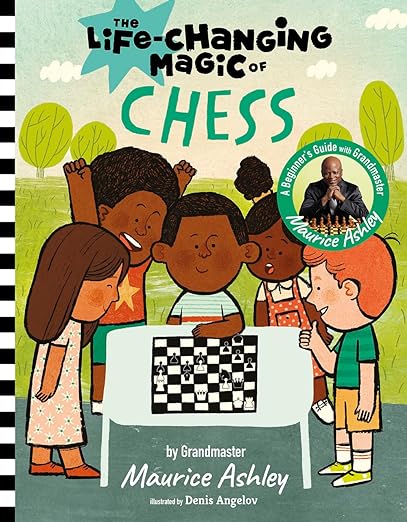

Thank you. But there hasn’t been a Black face in this country since then that has replicated what I did. And that’s bothersome to me on various levels, including from a legacy perspective. So it’s important for me to see young people of color now who are taking up the game and aspiring to be great. It is a difficult process and I want to help those young people who are sincere about the journey and want to get to that level, and are willing to do the work.
In addition to “Move by Move,” you’re also releasing a children’s book, “The Life-Changing Magic of Chess,” on the same day. Will that be like a tutorial or…?
It’s for early readers, and hopefully it will inspire them to see that I as a kid was just like them. I wanted to learn how to play and fell in love with something that I ended up doing for the rest of my life. It has some tutorial in it to just let people know the basics about how to move pieces. But it also has life lessons on its own. And it talks about me growing up, watching my brother play then getting beat in high school, and eventually becoming a grandmaster.
Right. And maybe someone will be in school and they find your book, kind of like how you found that book at Brooklyn Technical High School.
That would be really cool.
“Move by Move” and “The Life-Changing Magic of Chess” will both be released on April 2, 2024.
You might also like 


















